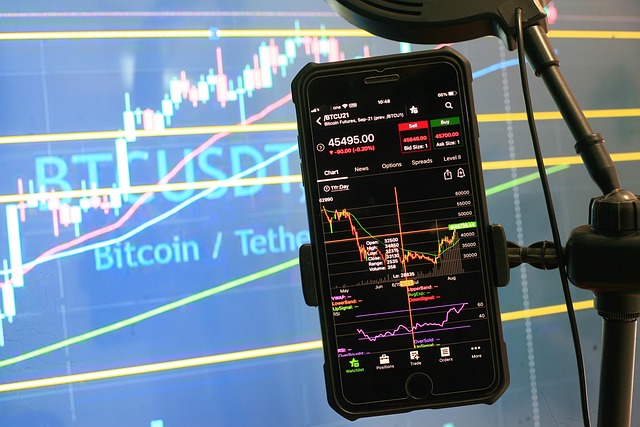US Treasury argues no need for final court judgment in Tornado Cash case
The US Treasury Department says there is no need for a final court judgment in a lawsuit over its sanctioning of Tornado Cash after dropping the crypto mixer from the sanctions list.In August 2022, Treasury’s Office of Foreign Assets Control (OFAC) sanctioned Tornado Cash after alleging the protocol helped launder crypto stolen by North Korean hacking crew the Lazarus Group, leading to a number of Tornado Cash users filing a lawsuit against the regulator. After a court ruling in favor of Tornado Cash, the US Treasury dropped the mixer from its sanctions list on March 21, along with several dozen Tornado-affiliated smart contract addresses from the Specially Designated Nationals (SDN) list, and has now argued “this matter is now moot.”Because Tornado Cash has been dropped from the sanctions list, the US Treasury Department argues there is no need for a final court judgment in the lawsuit. Source: Paul Grewal“Because this court, like all federal courts, has a continuing obligation to satisfy itself that it possesses Article III jurisdiction over the case, briefing on mootness is warranted,” the US Treasury said. However, Coinbase chief legal officer Paul Grewal said the Treasury’s hope to have the case declared moot before an official judgment can be made isn’t the correct legal process.“After grudgingly delisting TC, they now claim they’ve mooted any need for a final court judgment. But that’s not the law, and they know it,” he said.“Under the voluntary cessation exception, a defendant’s decision to end a challenged practice moots a case only if the defendant can show that the practice cannot ‘reasonably be expected to recur.’”Grewal pointed to a 2024 Supreme Court ruling that found a legal complaint from Yonas Fikre, a US citizen who was put on the No Fly List, is not moot by taking him off the list because the ban could be reinstated again at a later date.Source: Paul Grewal“Here, Treasury has likewise removed the Tornado Cash entities from the SDN, but has provided no assurance that it will not re-list Tornado Cash again. That’s not good enough, and will make this clear to the district court,” Grewal said.Six Tornado Cash users led by Ethereum core developer Preston Van Loon, with the support of Coinbase, sued the Treasury in September 2022 to reverse the sanctions under the argument that they were unlawful.Crypto policy advocacy group Coin Center followed through with a similar suit in October 2022. In August 2023, a Texas federal court judge sided with the US Treasury, ruling that Tornado Cash was an entity that may be designated per OFAC regulations. On appeal, a three-judge panel ruled in November that Treasury’s sanctions against the crypto mixer’s immutable smart contracts were unlawful.US Treasury had a 60-day window to challenge the decision, which it did; however, the US court sided with Tornado Cash, overturning the sanctions on Jan. 21 and forcing the government agency to remove the sanctions by March.Related: US Treasury under Trump could take a different approach to Tornado CashIts founders are still facing legal strife, however. The US charged Roman Storm and fellow co-founder Roman Semenov in August 2023, accusing them of helping launder over $1 billion in crypto through Tornado Cash. Semenov is still at large and on the FBI’s most wanted list. Storm is free on a $2 million bond and expected to face trial in April. Meanwhile, Tornado Cash developer Alexey Pertsev was released from prison after a Dutch court suspended his “pretrial detention” as he prepared to appeal his money laundering conviction.Magazine: Ripple says SEC lawsuit ‘over,’ Trump at DAS, and more: Hodler’s Digest, March 16 – 22
Tokenized US gold could ultimately benefit Bitcoin: NYDIG
An idea to tokenize or track US gold reserves to make their movements transparent on a blockchain won’t work in the same trustless way as Bitcoin does, but doing so could help the cryptocurrency, says a research analyst.Greg Cipolaro, global head of research at New York Digital Investment Group (NYDIG), said in a March 21 note that Trump administration officials, including Elon Musk, have floated using a blockchain to track US gold and government spending — an idea supported by crypto executives.“Here’s the thing about blockchains. They’re not very smart,” Cipolaro said. “They’re limited in the information they convey. For example, Bitcoin has no idea what the price of Bitcoin is or even the current time.”He said the tokenization or tracking of gold reserves on a blockchain could help with audits and transparency but would still “rely on trust and coordination with central entities” compared to Bitcoin, which “was designed to explicitly remove centralized entities.”Cipolaro added that tokenization and blockchain-tracking ideas aren’t competitive with the crypto market and might help to increase awareness of it, which “could ultimately benefit Bitcoin.”It comes amid calls from some for an independent audit of the United States’ gold reserves.Republican Senator Rand Paul last month seemingly called on Musk’s federal cost-cutting project to investigate the US government’s gold stash at the Bullion Depository in Fort Knox, which the US Mint says holds around half of the country’s gold. The Treasury audits and publishes reports on gold holdings at Fort Knox and other locations across the US every month, but President Donald Trump and Musk have both parrotted decades-old conspiracy theories about the gold and questioned whether it’s all still there.Source: Elon Musk Related: Who’s running in Trump’s race to make US a ‘Bitcoin superpower?’ They have both pushed for an independent audit of Fort Knox. The vaults were last opened in 2017 for Trump’s then-Treasury Secretary Steve Mnuchin to view the gold and before that, in 1974 to a congressional delegation and a group of journalists.The Mint’s website says that no gold has gone in or out of Fort Knox “for many years,” except for “very small quantities” used to test the gold’s purity during audits. Trump’s Treasury secretary, Scott Bessent, said last month that Fort Knox is audited every year and “all the gold is present and accounted for.”Magazine: Elon Musk’s plan to run government on blockchain faces uphill battle
US to return $7M to victims of ‘spoofed’ crypto investment websites
The United States government is taking action to return $7 million to victims of a social engineering scam that targeted individuals looking to invest in cryptocurrency. The scam involved fraudsters contacting victims and gaining their trust before directing them to fake crypto investment websites. These websites were designed to look legitimate, but were actually used to funnel funds through multiple bank accounts and then transfer them abroad.
The fraudsters would deceive victims by falsely claiming their investments were making significant gains. When victims attempted to withdraw their funds, the scammers would coerce them into sending more money by claiming they owed taxes on their profits. This elaborate scheme involved over 75 bank accounts and multiple shell companies to hide the true destination of the funds.
The United States Secret Service was able to seize some of the stolen funds from a foreign bank in 2023 and began a civil forfeiture action. After a lengthy legal battle, the US authorities reached a settlement agreement for $7 million of the seized funds. However, the victims of this scam are still urged to contact the Secret Service to petition for the recovery of their losses.
This is just one example of the growing trend of professionalized cyber syndicates targeting the cryptocurrency industry. In its 2025 Crypto Crime Report, blockchain analytics firm Chainalysis noted that crypto crime has become more sophisticated and organized. Other recent scams include SMS messages posing as legitimate crypto exchanges and a new form of crypto-stealing malware hidden in a “cracked” version of a popular trading platform.
As the crypto industry continues to grow, it is important for individuals to be vigilant and cautious when investing. Always do thorough research and only use trusted and verified platforms. If you believe you have been a victim of a crypto scam, report it to the proper authorities immediately. Let’s work together to combat these fraudulent activities and protect the integrity of the crypto market.
UK should tax crypto buyers to boost stock investing, economy, says banker
The UK should begin taxing crypto purchases in a bid to sway Britons to invest in local stocks, which could boost the country’s economy, says the chair of investment bank Cavendish, Lisa Gordon.“It should terrify all of us that over half of under-45s own crypto and no equities,” Gordon told The Times in a March 23 report. “I would love to see stamp duty cut on equities and applied to crypto.”Currently, the UK lumps a 0.5% tax on shares listed on the London Stock Exchange, the country’s largest securities market, which brings in around 3 billion British pounds ($3.9 billion) a year in tax revenue.Gordon added that a cut could sway people to put their savings into shares of local companies, which could then spark other firms to go public in the UK and help the economy.In comparison, she called crypto “a non-productive asset” that “doesn’t feed back into the economy.”“Equities provide growth capital to companies that employ people, innovate and pay corporation tax. That is a social contract. We shouldn’t be afraid of advocating for that.”The country’s Financial Conduct Authority said in November that crypto ownership rose to 12% of adults, equivalent to around 7 million people. A majority of crypto owners, 36%, were under the age of 55 years old.Gordon said that many had “shifted to saving rather than investing,” which she claimed “is not going to fund a viable retirement.”A 2022 FCA survey found that 70% of adults had a savings account, while 38% either directly held shares or held them through an account allowing nearly 20,000 British pounds ($26,000) of tax-free savings a year — around three in four 18-24 years olds held no investments.A quarter of 18-25 year olds and a third of 25-44 year olds held any investment in 2022. Source: FCABut in a follow-up survey, the regulator reported that in the 12 months to January 2024, the cost of living crisis had seen 44% of all adults either stop or reduce saving or investing, while nearly a quarter used savings or sold their investments to cover day-to-day costs.Gordon is a member of the Capital Markets Industry Taskforce, a group of industry executives aiming to revive the local market, which Cavendish would benefit from as it advises companies on how to navigate possible public offerings.Related: Will new US SEC rules bring crypto companies onshore?Consulting giant EY reported in January that the London stock market had one of its “quietest years on record,” with just 18 companies listing last year, down from 23 in 2023.At the same time, EY said 88 companies delisted or transferred from the exchange, with many saying they moved due to “declining liquidity and lower valuations compared to other markets” such as the US.However, Gordon claimed the UK is a “safe haven” compared to markets such as the US, which has lost trillions of dollars in its stock markets due to President Donald Trump’s tariff threats and fears of a recession.Crypto markets have also slumped alongside US equities, with Bitcoin (BTC) trading down 11% over the past 30 days and struggling to maintain support above $85,000 since early March.In the past 24 hours, at least, Bitcoin is up 2%, trading around $85,640.Magazine: Memecoins are ded — But Solana ‘100x better’ despite revenue plunge
Bitcoin bottom forming as Fed eases, Trump softens on tariffs: Analyst
Bitcoin may have bottomed and could rebound toward $90,000 after US President Donald Trump signaled a willingness to ease tariffs and the Federal Reserve resisted short-term pressure last week, according to a crypto analyst.“Bitcoin is attempting to form a bottom, supported by Trump’s recent shift toward ‘flexibility’ on the upcoming April 2 reciprocal tariffs, softening his earlier rhetoric,” 10x Research’s founder Markus Thielen said in a March 23 report.The Federal Reserve signaled in its March 18-19 meeting that it would also “look past short-term inflationary pressures, laying the groundwork for potential future easing,” Thielen added.“Powell’s mildly dovish tone suggests that the Fed’s put remains intact, providing further support for a recovery in stock prices.”10x Research’s Bitcoin reversal indicators have turned bullish as a result, with Bitcoin’s (BTC) 21-day moving average now at $85,200, Thielen noted.Bitcoin’s bottoming formations over the last two years. Source: 10x ResearchHe said these weekly reversal indicators have pulled back to levels where past bull markets have resumed, such as in September 2023 — spurred on by the Bitcoin exchange-traded fund narrative — and August 2024 as the US election neared.“In short, the technical backdrop has now reset to a point where a renewed uptrend could plausibly unfold.”Thielen also noted that several altcoins are already breaking out of their downtrend channels and trading at more “attractive levels.”Bitcoin is currently trading at $85,720, up 2.1% over the last 24 hours, CoinGecko data shows.Meanwhile, Ether (ETH), Tron (TRX), and Avalanche (AVAX) have rebounded 4.3%, 6.4% and 8.9% respectively over the last week. The crypto research analyst, however, expects to see “significant resistance” at the $90,000 mark for Bitcoin, should it reach that level.Despite the more positive outlook, “no clear catalyst exists for an immediate parabolic rally” is in sight, Thielen said.Related: Bitcoin ‘in position’ for first key RSI breakout in 6 months at $85KHe initially said Bitcoin wouldn’t drop below $73,000 — thereby avoiding a “deep bear market” — because the largest sum bracket of Bitcoin holders (wallets with 100-1000 Bitcoin) are likely family offices and wealth managers who are invested in Bitcoin for the long term.He also noted that the US-based spot Bitcoin ETFs returned inflows for the first time last week since the last week of January. “We expect Bitcoin ETF selling from arbitrage-focused investors to wind down, as the arbitrage opportunities have primarily been closed for weeks,” Thielen added.Magazine: SEC’s U-turn on crypto leaves key questions unanswered
Fidelity files for Ethereum-based US Treasury fund ‘OnChain’
Fidelity Investments has filed to register a tokenized version of its US dollar money market fund on Ethereum — joining the likes of BlackRock and Franklin Templeton in the blockchain tokenization space.Fidelity’s March 21 filing with the US securities regulator said “OnChain” would help track transactions of the Fidelity Treasury Digital Fund (FYHXX) — an $80 million fund consisting almost entirely of US Treasury bills.While OnChain is pending regulatory approval, it is expected to take effect on May 30, Fidelity said.Fidelity’s filing to register a tokenized version of the Fidelity Treasury Digital Fund. Source: Securities and Exchange CommissionThe OnChain share class aims to provide investors transparency and verifiable tracking of share transactions of FYHXX, although Fidelity will maintain traditional book-entry records as the official ownership ledger.“Although the secondary recording of the OnChain class on a blockchain will not represent the official record of ownership, the transfer agent will reconcile the secondary blockchain transactions with the official records of the OnChain class on at least a daily basis.”Fidelity said the US Treasury bills wouldn’t be directly tokenized.The $5.8 trillion asset manager said it may also expand OnChain to other blockchains in the future.Related: Ethereum eyes 65% gains from ‘cycle bottom’ as BlackRock ETH stash crosses $1BAsset managers have increasingly turned to blockchain to tokenize Treasury bills, bonds and private credit over the past few years.The RWA tokenization market for Treasury products is currently valued at $4.78 billion, led by the BlackRock USD Institutional Digital Liquidity Fund (BUIDL) at $1.46 billion, according to rwa.xyz.Market caps of blockchain-based Treasury products. Source: rwa.xyzOver $3.3 billion worth of RWAs are tokenized on the Ethereum network, followed by Stellar at $465.6 million.BlackRock’s head of crypto, Robbie Mitchnick, recently said Ethereum is still the “natural default answer” for TradFi firms looking to tokenize RWAs onchain.“There was no question that the blockchain we would start our tokenization on would be Ethereum, and that’s not just a BlackRock thing, that’s the natural default answer.”“Clients clearly are making choices that they do value the decentralization, they do value the credibility, and the security and that’s a great advantage that Ethereum continues to have,” he said at the Digital Asset Summit in New York on March 20.Magazine: Comeback 2025: Is Ethereum poised to catch up with Bitcoin and Solana?
Cathie Wood to kick off El Salvador's AI public education program
Cathie Wood, founder of the investment firm Ark Invest, is set to kick off El Salvador’s new Urban Centers for Welfare and Opportunities (CUBO) AI program. This public education initiative, spearheaded by the government of El Salvador, aims to bring university-level AI courses to students and professionals. The program follows the country’s successful CUBO Bitcoin (BTC) and Lightning Network developer program.
According to El Salvador’s Bitcoin Office, the CUBO AI program will leverage industry experts to provide AI education to the public. In a recent post, the office stated, “As El Salvador continues to transform into a tech and financial powerhouse, CUBO AI will equip students and professionals with the necessary tools to dominate the AI frontier.”
El Salvador has been making strides to position itself as a regional hub for innovation and investment. This includes integrating Bitcoin classes into public education, utilizing geothermal energy to mine BTC, and passing pro-crypto and AI policies. In May 2024, Cathie Wood met with El Salvador’s President Nayib Bukele to discuss the future of digital assets and AI policy in the country. Wood left the meeting confident that El Salvador could increase its GDP tenfold over the next five years if it continues its tech-focused agenda.
In September 2024, Bukele also met with Elon Musk to discuss artificial intelligence and other 21st-century technologies, including crypto. Musk praised Bukele as “an amazing leader,” and the two continue to build rapport that could potentially lead to collaboration between the businessman and the government of El Salvador.
El Salvador’s efforts to become a regional tech hub have not gone unnoticed, as it continues to attract crypto businesses and foreign direct investment. With initiatives like the CUBO AI program, the country is positioning itself as a leader in the tech and digital finance space. As Cathie Wood stated in a recent post, “The President could scale El Salvador’s GDP 10-fold during his next 5-year term.” This forward-thinking approach is sure to bring even more success to the Central American country in the years to come.
Bitcoin mining hashprice stays flat despite higher difficulty: Report
The Bitcoin (BTC) mining hashprice — a miner’s daily revenue per unit of hashing power expended to mine blocks — has remained constant at around $48 per petahash per second (PH/s), despite a slight 1.4% uptick in Bitcoin difficulty.Data from CoinWarz shows that the Bitcoin difficulty climbed to 113.76 trillion at block 889,081 on March 23, up from the 112.1 trillion difficulty in the previous epoch.According to TheMinerMag, a hashprice below $50 places financial stress on miners running older hardware such as the Antminer S19 XP and S19 Pro.The older hardware coupled with declining network transaction fees risks pushing some miners into unprofitable territory — forcing them to turn off their hardware until they upgrade their application-specific integrated circuits (ASICs) or network conditions change.Mining firms have been struggling since the April 2024 Bitcoin halving event, which slashed the block subsidy to 3.125 BTC per block mined, generally increasing network difficulty, and the recent downturn in the crypto markets due to macroeconomic uncertainty.Bitcoin mining difficulty. Source: CoinWarzRelated: SEC says proof-of-work mining does not constitute securities dealingMiners have a rough start to 2025Research from financial services firm JPMorgan shows that publicly listed Bitcoin mining companies collectively lost 22% of their share value in February 2025.Even miners who diversified operations into artificial intelligence and high-performance computing data centers, to shore up revenue lost through mining activities, are facing financial pressures, the JPMorgan report found.The financial services firm cited the release of DeepSeek R1, an open-source AI model trained for a fraction of the cost as the leading models and performs on par with closed-source AI products, as a strain on large AI data centers.Although the Bitcoin network’s hashrate oscillates in the short term, the long term trend is up-only. Source: CryptoQuantA steadily rising network hashrate, which is the sum total computing power in the Bitcoin network, is also creating increased competition among miners, who must expend greater computing resources to remain profitable.Fears of a prolonged trade war between the United States and Canada, alongside constant tariff headlines, have put miners on edge.Threats from Canadian officials to levy tariffs on energy exports to the United States place even more pressure on the already struggling industry.Magazine: Korea to lift corporate crypto ban, beware crypto mining HDs: Asia Express








